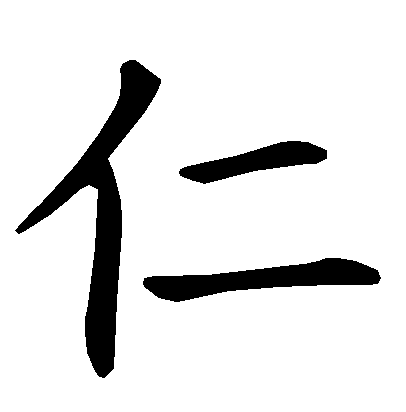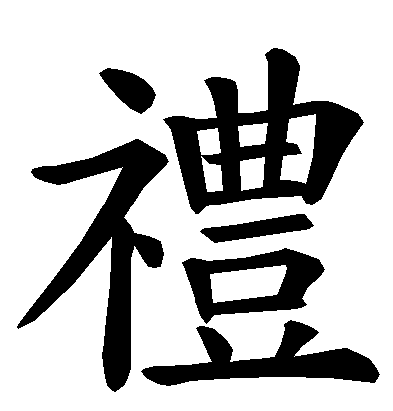 |
| Water, source of life Common symbol for Confucianism |
This book is an intellectual history of spiritual Confucianism, which takes jen (humaneness) and the unification of the ethical and political as its ultimate commitment. Spiritual Confucianism is not the same as political Confucianism or popular Confucianism. Though, both of these Confucianisms are intertwined with spiritual Confucianism.
 |
| Jen |
140 Word Summary:
The Analects of Confucius made jen (humaneness) central; The Book of Mencius established the orthodoxy that human nature is good; The Great Learning begins with internal sageliness and works outward; and in The Doctrine of the Mean, T’ien (Heaven) is both transcendent and immanent. These four ancient texts, known as the Four Books, provide the core of Confucianism. Later, Neo-Confucians of the Sung and Ming periods (approximately 960-1644 A.D.) were impacted by the Yin-Yang School, Buddhism, and Neo-Taoism.
In addition to traditional Confucian concepts, they were interested in problems concerning hsin (heart-mind) and hsing (nature). Also, they interpreted li (principle) and ch’i (material force) in more metaphysical ways. Chu Hsi (1130-1200 A.D.) was the great synthesizer, and Huang Tsung-hsi (1610-1695 A.D.) was the last advocate for the transcendent aspects of Confucianism until the 20th century.
Extended Summary and Critique:
In contrast to the idea of original sin in Western theology, Confucianism emphasizes the inherent goodness in humanity. For instance, in the Analects, Confucius expresses a deep faith in the possibility of human morality; and Mencius establishes the Confucian orthodoxy that human nature is originally good.
Mencius established the Four Beginnings; these beginnings are evidence of the inherent goodness of human nature. Briefly, the feeling of commiseration is the beginning of jen (humaneness), the feeling of deference and compliance is the beginning of li (propriety); the feeling of right and wrong is the beginning of wisdom; and the feeling of shame and dislike is the beginning of i (righteousness).
 |
| Li |
If we have these Beginnings; then, why do humans act immorally? Because, artificial environmental factors divert us from our originally good nature. Just as it is possible to dam a river forcing it upstream; it is possible to alter human nature. People can lose their good natured hsin (heart-mind) and if they do, then they do not typically attempt to retrieve it. Practicing the Four Beginnings is the way to jen.
Politics are a direct extension of ethics for Mencius. Government should practice jen and people of jen should rule. A true ruler will act in ways that promote the original goodness in people.
People must have a secure livelihood to have a secure mind, and if people do not have a secure mind then they will result to various sorts of criminal behavior. After people are fed and have a secure mind, then they must be educated to fulfill their proper roles. The theme of focusing on one’s own development and extending it to society is also emphasized in The Great Learning.
The last of the Four Books, The Doctrine of the Mean, is the most metaphysical. T’ien (Heaven) is depicted as both the metaphysical principle and the first manifestation of the metaphysical principle. Heaven and Earth are the two main forces that keep the creative process of the universe going, which is the source of being for the various things in the world. One who achieves ch’eng (sincerity, Truth, Reality) is truly following the Dao (Way).
Ch’eng has both an ethical and metaphysical (transcendent) component; there is little real distinction between ethics and metaphysics in Confucian thought. In fact, Liu suggests that in The Doctrine of the Mean ch’eng is another name for the all-encompassing metaphysical principle (T’ien). T’ien is subtle (literally the opposite of overt or obvious) and is the model for human ethics; one has to pay attention to the creative spark within to model themselves after T’ien.
Confucianism took a much more authoritarian and political turn during the Han dynasty and as a result intellectual interest in Confucianism lessened. It wasn’t until approximately 960 A.D. during the Sung and Ming periods that Chinese scholars started to re-evaluate the Confucian Way, this movement is known as Neo-Confucianism.
Liu, the author, explores a typical Neo-Confucian position on equilibrium and harmony through Chu Hsi, the great Neo-Confucian synthesizer. It was his intermediate position, rather than his final position that obtained Confucian orthodoxy.
The orthodox line created by Chu Hsi is that hsing (human nature) was the state before the feelings were aroused and the heart-mind (hsin) was the state after arousal. (Recall that Mencius’ Four Beginnings are feelings). Later, Chu Hsi found this to be a problem because if hsing is the state before feelings were aroused, then there are no feelings in human nature and no way to cultivate the seeds of morality; eliminating the possibility of self-discipline.
 |
| Hsin |
Thus, he formulated his final mature view that hsin encompasses both the state before and the state after feelings arose. He developed a comprehensive metaphysics of li and ch’i to aid in his analysis of mind, nature, and feelings. This metaphysics was developed due to an existential concern; emulating the general Confucian ideal of starting with the self and working outwards.
Even though, Chu Hsi deviated from Confucius and Mencius to a notable degree, it was his version of Neo-Confucianism that became the main branch. Huang Tsung-hsi (1610-1695), refusing to give up on li as a transcendent quality, would be the last Neo-Confucian until the twentieth century.
Bottom Line:
Confucian philosophy starts with the individual and works outward; you can even see this in its intellectual history. Confucius did not address cosmology or metaphysics in much detail; but, later Chu Hsi developed a fine tuned metaphysical system.
In contrast, Western philosophy typically starts with metaphysics. Plato focused the Good, Aristotle the Prime Mover, Christian philosophers argued about the nature of God, and etc…. This is not an iron-clad rule, but a very strong trend.
The interpretive question is this; do we try to understand Confucianism on its own terms? Or do we acknowledge and embrace our predispositions in attempt to increase the value of both Eastern and Western philosophy, as Ames argued?
There are interpretative pitfalls for both strategies. In the first method, there is the risk of unintentionally bringing Western intellectual baggage to Confucianism. In the second method, the risk is obtaining only a superficial understanding by not delving deep enough into the terms and problems of a noble tradition.
Our important comparative work will be better if we try to take a tradition on its own terms, and our important interpretative work will benefit by comparing one tradition to another. We need practice both methods simultaneously. Understanding worldviews is difficult work and will never be fully completed. But we gain so much in the attempt!
No comments:
Post a Comment